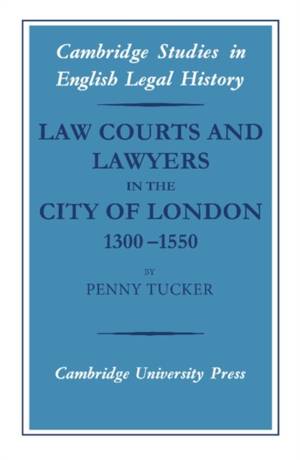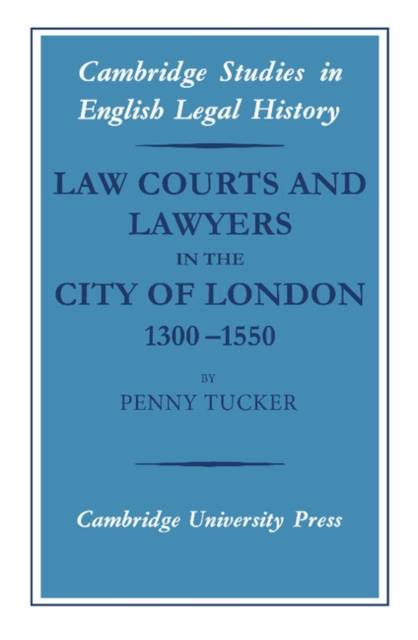
- Afhalen na 1 uur in een winkel met voorraad
- Gratis thuislevering in België vanaf € 30
- Ruim aanbod met 7 miljoen producten
- Afhalen na 1 uur in een winkel met voorraad
- Gratis thuislevering in België vanaf € 30
- Ruim aanbod met 7 miljoen producten
Zoeken
Omschrijving
Between 1300 and 1550, London's courts were the most important English lay law courts outside Westminster. They served the most active and innovative of the local jurisdictions in which custom combined with the common law to produce different legal remedies from those contemporaneously available in the central courts. More importantly for the long term, not only did London's practices affect other local courts, but they influenced the development of the national common law, and quite possibly the development of the legal profession itself. This 2007 book provides a detailed account, accessible to non-legal historians, of the administration of the law by the medieval and early modern city of London. In analysing the workings of London's laws and law courts and the careers of those who worked in them, it shows how that administration, and those involved in it, helped to shape the modern English law.
Specificaties
Betrokkenen
- Auteur(s):
- Uitgeverij:
Inhoud
- Aantal bladzijden:
- 440
- Taal:
- Engels
- Reeks:
Eigenschappen
- Productcode (EAN):
- 9780521866682
- Verschijningsdatum:
- 18/01/2007
- Uitvoering:
- Hardcover
- Formaat:
- Ongenaaid / garenloos gebonden
- Afmetingen:
- 175 mm x 223 mm
- Gewicht:
- 1973 g

Alleen bij Standaard Boekhandel
+ 426 punten op je klantenkaart van Standaard Boekhandel
Beoordelingen
We publiceren alleen reviews die voldoen aan de voorwaarden voor reviews. Bekijk onze voorwaarden voor reviews.







